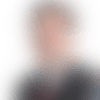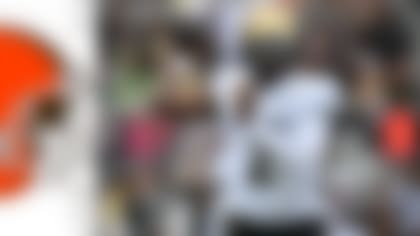Super Bowl LV's in the books, bringing an unprecedented ╣·▓·═Ō┴„═°season to a close. So, how did the new guys perform in this uniquely challenging 269-game slate? Gennaro Filice and Nick Shook are taking a division-by-division look at each team's rookie class, providing grades and analysis on Year 1 production. Filice examines the NFC North below.
Round 1
- (No. 22) Justin Jefferson, WR, 16 games/14 starts
- (31) Jeff Gladney, CB, 16 games/15 starts
Round 2
- (58) Ezra Cleveland, OG, 13 games/9 starts
Round 3
- (89) Cameron Dantzler, CB, 11 games/10 starts
Round 4
- (117) D.J. Wonnum, DE, 14 games/2 starts
- (130) James Lynch, DT, 9 games
- (132) Troy Dye, LB, 11 games/5 starts
Round 5
- (169) Harrison Hand, CB, 14 games/1 start
- (176) K.J. Osborn, WR, 9 games
Round 6
- (203) Blake Brandel, OT
- (205) Josh Metellus, S, 15 games
Round 7
- (225) Kenny Willekes, DE
- (244) Nate Stanley, QB
- (249) Brian Cole, S (w/ MIA)
- (253) Kyle Hinton, OG
Notable Undrafted Free Agent
- Blake Lynch, LB, 4 games/1 start
How impressive was Jefferson's rookie campaign? Impressive enough to make the Vikings feel just fine about trading away Stefon Diggs and watching him immediately lead the league in catches and receiving yards. Yes, this was the elusive win-win trade. Diggs wasn't happy in Minneapolis -- the city where he produced a miracle -- so Minnesota flipped him for a pick package that included No. 22 in last April's draft. In that slot, the Vikes took the fifth receiver in Round 1, Jefferson, who broke Anquan Boldin’╗┐'s rookie record with 1,400 receiving yards on the dot. And just last week, the tireless tape munchers over at Pro Football Focus -- who apparently have a mischievous troll streak that this writer can't help but appreciate -- slapped Jefferson at No. 15 on their ranking of , exactly one spot ahead of Diggs. Minnesota's second first-round pick didn't work out nearly as well as the first. Gladney started 15 of 16 games for the Vikings, and while he flashed proficiency as a physical cover man in certain matchups, consistency was a major issue, as evidenced by his 124.7 passer rating against, per PFF. Fortunately, Minnesota doubled down on this position of extreme need and found a quality corner in the back half of the third round, as Dantzler proved that doesn't define a man. Though injuries limited him to 11 games, Dantzler earned a spot alongside Jefferson on . The Vikings also got some quality production from this class in the trenches, with Cleveland capably starting nine games at right guard and Wonnum notching three sacks and nine QB hits as a rotational pass rusher. Rick Spielman had the most bites at the 2020 draft apple with an NFL-high 15 picks, though the vast majority of them occurred on Day 3. Still, he was able to net quality contributors in multiple areas of need.
Round 2
- (No. 43) Cole Kmet, TE, 16 games/9 starts
- (50) Jaylon Johnson, CB, 13 games/13 starts
Round 5
- (155) Trevis Gipson, OLB, 7 games
- (163) Kindle Vildor, CB, 16 games/1 start
- (173) Darnell Mooney, WR, 16 games/9 starts
Round 7
- (226) Arlington Hambright, OL, 9 games/1 start
- (227) Lachavious Simmons, OL
In Ryan Pace's unrelenting mission to roster every tight end walking planet Earth, the Bears were the first team to dive into that positional pool in the 2020 draft, taking the Notre Dame product who hails from the Chicago suburbs. Kmet logged nearly as many snaps as the team's TE1, Jimmy Graham’╗┐, but his numbers (28 catches, 243 yards, two TDs) paled in comparison to Graham's somewhat-underwhelming production (50/456/8). He seemed to improve as an in-line blocker over the course of the season, but that was far from a strength. Here's the thing, though: Tight ends typically transition slowly to the NFL. So the experience Kmet gained in playing a full season -- and starting nine games -- shouldn't be overlooked. Seven picks after Kmet, Pace nabbed a Day 1 starter in Johnson. The cornerback missed the final four games of the season (including the wild-card loss at New Orleans) with a shoulder injury, but before that, he gave Bears fans plenty to be excited about. The 6-foot, 195-pound CB had some struggles in zone coverage, but he was a physical force in man-to-man and tied for fifth in the ╣·▓·═Ō┴„═°with 15 pass breakups, including . Johnson and Kyle Fuller could be one of the better CB tandems in the ╣·▓·═Ō┴„═°in 2021. The best bang for the buck came at pick No. 173, where Chicago grabbed the fleet-footed Mooney. Despite being the 24th wide receiver off the board, Mooney racked up 61 catches for 631 yards and four touchdowns. A true deep threat who brings saucy route-running and aerial acrobatics, Mooney has the tools to beat the NFL's best cover men. I mean, look at what . (Yes, the ball was overthrown. No, I don't care.)
Round 1
- (No. 3) Jeff Okudah, CB, 9 games/6 starts
Round 2
- (35) D'Andre Swift, RB, 13 games/4 starts
Round 3
- (67) Julian Okwara, DE, 6 games
- (75) Jonah Jackson, OG, 16 starts
Round 4
- (121) Logan Stenberg, OG, 2 games
Round 5
- (166) Quintez Cephus, WR, 13 games/2 starts
- (172) Jason Huntley, RB, 5 games
Round 6
- (197) John Penisini, DT, 16 games/12 starts
Round 7
- (235) Jashon Cornell, DT
The last draft class of the Bob Quinn era did nothing in Year 1 to depress Detroit's thriving . Given his Ohio State corner pedigree and lofty draft slot, Okudah had to be the most disappointing first-round pick in the 2020 draft. With the elite lockdown skills he displayed in the Big Ten, the No. 3 overall pick seemed like an ideal piece for Matt Patricia's man-heavy scheme. But after missing the season opener with a bum hammy, Okudah was eviscerated in his debut at Green Bay, giving up . Now, everyone deserves a mulligan, especially when you're a cornerback opening up your professional career against Aaron Rodgers’╗┐. But Okudah's play just didn't get much better over the remainder of the year. In fact, Pro Football Focus charted him with yielding a league-worst 2.1 yards per cover snap at outside corner. Not to mention, a core muscle injury ended his season in November. Just an all-around disaster of a rookie campaign. Swift got off to a rough start, too, with six seconds left in Detroit's Week 1 loss to the rival Bears. But unlike Okudah, Swift bounced back to put some encouraging play on tape in Year 1. A boffo performance in the Lions' Week 10 win over Washington -- 16 rushes for 81 yards; five catches for 68 yards and a touchdown -- showed off Swift's enticing all-around skill set, but he needs to stay healthy going forward. Jackson turned out to be exactly the kind of solid-if-unspectacular third-round pick most expected him to be, starting all 16 games at guard. Cephus made a beautiful 49-yard touchdown catch in Detroit's last win of the season, Week 13 at Chicago. The Lions will need more of that in 2021, with Kenny Golladay’╗┐, Marvin Jones and Danny Amendola all set to hit free agency next month. Even if Golladay gets the franchise tag, this receiving corps looks light heading into next season.
Round 1
- (No. 26) Jordan Love, QB
Round 2
- (62) AJ Dillon, RB, 11 games
Round 3
- (94) Josiah Deguara, TE, 2 games/1 start
Round 5
- (175) Kamal Martin, LB, 10 games/6 starts
Round 6
- (192) Jon Runyan, OG, 16 games
- (208) Jake Hanson, C
- (209) Simon Stepaniak, OG
Round 7
- (236) Vernon Scott, S, 15 games
- (242) Jonathan Garvin, OLB, 8 games
Notable Undrafted Free Agent
- Krys Barnes, LB, 13 games/10 starts
Quick disclaimer: If you truly believe that Green Bay's decision to trade up and draft a quarterback in the first round lit a fire under Aaron Rodgers so intense that it propelled him to his third MVP, then yeah, this grade is far too low. But here in the real world -- where Love didn't suit up for a single game, serving as the third-string QB behind Tim Boyle’╗┐, and the Packers fell in the conference championship game for the second straight season -- it's impossible to look at this rookie class and not think about what could've been. Dillon showcased potential down the stretch, particularly as a late-December snow plow against Tennessee on Sunday Night Football, when he carried the Pack to a blowout win with 21 totes for 124 yards and two touchdowns. With Aaron Jones and Jamaal Williams’╗┐' contracts expiring next month, Dillon appears ticketed for a heavy workload in 2021. The one other area where this class provided legit ROI was inside linebacker. Barnes, an undrafted free agent out of UCLA, was a Week 1 starter and eventually took over as Green Bay's defensive signal-caller. Despite missing three games on the reserve/COVID-19 list, he finished second on the team in tackles. Meanwhile, Martin got a late start after suffering a knee injury in camp, but he wound up starting six games. Neither Barnes nor Martin is known for their quickness or coverage ability, which is always a concern with linebackers in the modern NFL. The Packers fell five points short of the eventual Super Bowl champion Buccaneers in the NFC title bout, so second-guessing Brian Gutekunst's long-view approach to this draft class is only natural. But let's be real: There was plenty of first-guessing.
Follow on Twitter.
















